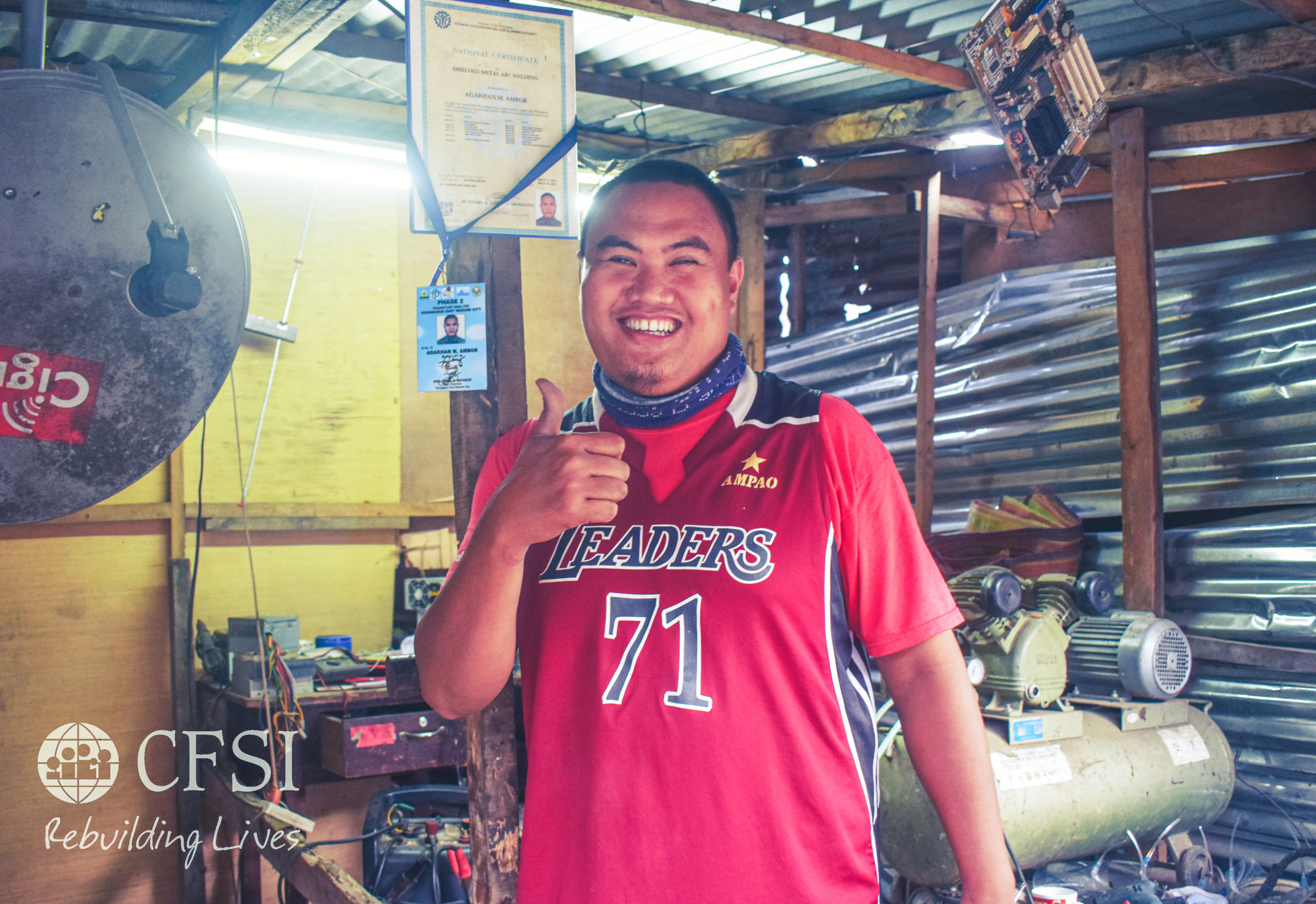There are things that are happening in our lives that we do not understand; it sometimes leaves us confused. But even so, we try to get up from life’s challenges because we believe that there’s no life without trials and no success without patience. For every trial that comes our way, the Almighty has given us the strength to face it. He would never let us go through something we could not handle.
Despite these tests, there are still people who continue to dream and work hard to realize their goals. These goals are not only for themselves but also for their loved ones.
Such is the same for Agakhan Menor, 35, and his eight children. Before the Marawi Siege, his family lived in Brgy. Raya Saduc in Marawi City, now known as part of the city’s Most Affected Area (MAA). He used to be a cellphone repair technician and a seller of cellphone accessories.
In an unexpected turn of events, all that he had worked for many years have disappeared because of the siege. They were forced to evacuate and abandon their home and business to escape the turmoil and gunfire that took place in the city in 2017. Their previously quiet and simple life was replaced by sadness and resentment. They began living in Sarimanok Tent City as internally displaced persons (IDPs) for about three years.
Their usual habit of living has changed. His family solely relied on relief goods and various assistance given by the government and other non-government organizations (NGO), whenever it is available. But the assistance they receive was still not enough to support their needs. Agakhan knew he had to do something. He then decided to run a small junk shop.
While staying at the evacuation site, the Technical Education and Skills Development Authority (TESDA) of the Philippine Government offered vocational courses for IDPs who were living inside the tent city. Agakhan was able to avail of the free welding courses.
“I always wanted to learn how to weld. I used to dream of owning my own welding shop,” Agakhan said.
He also wants to find more ways to provide better for his family.
In 2018, Agakhan and his family became project participants of the CFSI Marawi Recovery Project (MRP) funded by the Australian Government Department of Foreign Affairs and Trade (DFAT). To complement his NC II in welding, Agakhan received a vulcanizing set livelihood support from the Project.
“I thank CFSI for allowing me to choose the kind of livelihood I want. I have always wanted to have my own welding set because vulcanizing earns a steady income. Just put up a shop by the roadside, and customers will come to you,” he said.
He was able to put up a shop by Banggolo Bridge in the barangay where he used to leave. Customers would visit his shop to have their motorcycles and multicabs repaired.
From his earnings during the first two months of his shop’s operations, he bought more equipment and tools such as an electric pistol, charging battery, and tire repairs. He was then able to offer more services for his patrons and gain additional income.

Agakhan now runs a small welding and junk shop to meet his family’s needs.
Before the pandemic hit Marawi City, he used to earn more than Php1,000 per day. His income decreased to about Php300 to Php500 a day due to the effect of the pandemic, one of which was the restrictions in the movement of people. Fewer people allowed to go outside meant fewer passengers in public vehicles. Thus, jobs for vehicle repairs went down drastically.
Agakhan did not lose hope. He finds other ways of gaining income through selling charcoal, running a small junk shop, and even grating coconuts with the help of his wife. They were also relocated to a better place in Rorogagus Transitory Shelter, where they live for about two years now.
After getting his dream business, Agakhan dreams now of giving a good life and stable future for his eight children.
“I wanted to put up a business where I can save money for my children, and someday, turn over the business to them in the future. For now, I am able to earn enough income to feed my family,” Agakhan said.
—
Agakhan is one of the *3,669 Internally Displaced Persons (IDPs) provided with urban-based livelihood support through CFSI’s Marawi Recovery Project. CFSI, supported by the Australian Government, implements the MRP in 2017 to promote protection, psychosocial, and livelihood recovery of at least 6,500 households affected by the Marawi crisis.
*as of December 2020
—
This article was written by Omarjah Mohammad Yasser and Sorainie Sowaib, Field Assistants of CFSI under the Marawi Recovery Project (MRP)

